Lee Hamilton '52 Says "Once-Over-Lightly Journalism" Poses Risks to Democracy
May 28, 2018
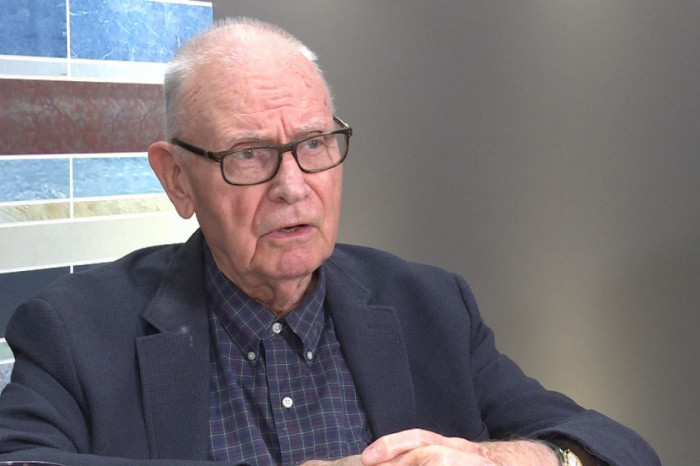 Lee H. Hamilton, veteran statesman and 1952 graduate of DePauw University, writes that "if you value representative democracy, you have to be deeply concerned about the once-over-lightly journalism that fills our media. Too often, reporters, commentators and online contributors focus on trivia, partisan posturing and political gamesmanship, and not on the substance of issues."
Lee H. Hamilton, veteran statesman and 1952 graduate of DePauw University, writes that "if you value representative democracy, you have to be deeply concerned about the once-over-lightly journalism that fills our media. Too often, reporters, commentators and online contributors focus on trivia, partisan posturing and political gamesmanship, and not on the substance of issues."
In an opinion column published in a number of newspapers, Hamilton, who served 34 years in the U.S. House of Representatives, notes, "Our representative democracy depends on journalists doing their jobs. Why? Because it’s essential citizens get the solid, accurate and fair information they need to make good judgments about politicians and policy decisions. Our system cannot work if journalists and the institutions they work for don’t shoulder the burden of serving as watchdogs, holding government accountable, shining a light on overlooked challenges, and exploring complicated issues in as clear-eyed a manner as possible."
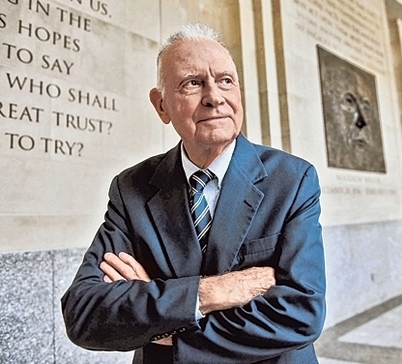 Hamilton observes, "The disruptive forces that have laid waste to traditional journalistic organizations have pared down the newsrooms that can carry out in-depth journalism and investigative reporting. Yet the world we live in is so complicated and so difficult to understand that the need is greater than ever for journalists to pick out what really matters in their communities or in the nation and convey solid information to the citizen."
Hamilton observes, "The disruptive forces that have laid waste to traditional journalistic organizations have pared down the newsrooms that can carry out in-depth journalism and investigative reporting. Yet the world we live in is so complicated and so difficult to understand that the need is greater than ever for journalists to pick out what really matters in their communities or in the nation and convey solid information to the citizen."
Real, impactful reporting takes skill and time, among other things, he writes. "The prevalence of fake news and misinformation makes this search for objective truth ever more difficult and challenging ... Disentangling truth and untruth from the citizen’s standpoint is really hard. So I applaud and admire journalists who are dedicated to truth. And there are enough of them that there is still plenty of good, solid reporting."
But the current information landscape is filled with too much "less-than-solid noise," the Democrat asserts. "This places a particular burden on us, as citizens, to work hard to find it and understand it. Especially because some of the institutions we once relied upon for independent, objective information -- I’m thinking specifically of Congress here -- have increasingly stopped serving as models for the search for truth.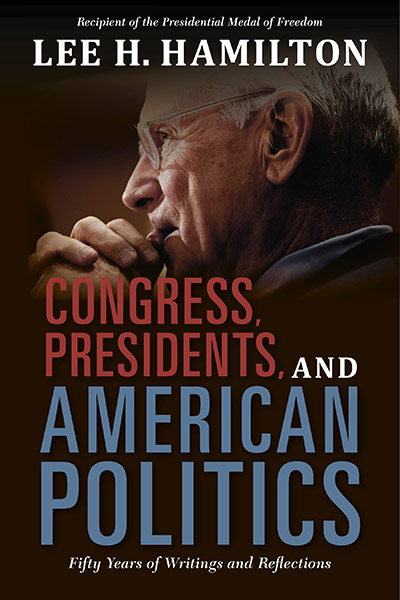
"The plain truth is, there’s much to distract both journalists and citizens from what’s really necessary to cover and to understand. Sorting through all the information at our fingertips, distilling meaning from it, zeroing in on what’s really important: That’s work that both journalists and ordinary citizens have to undertake."
Hamilton says it's up to journalists and their audiences to improve the state of our news media. For citizens, "it means conscientiously following reliable, fact-oriented media -- and not just a single source, either, because none has a monopoly on the truth -- and using their reporting to make discriminating judgments about public affairs."
He concludes, "Getting all of this right is essential to making our government work. Journalists have to ask themselves whether they are getting to the bottom of stories and giving enough information to citizens so they can make good judgments -- or are they too focused on trivia and entertainment and posturing? And citizens -- whose media tastes drive so much of what the media provide -- need to be focused on what matters. It’s a complicated dance, but in the end, it comes down to one thing: Journalists need to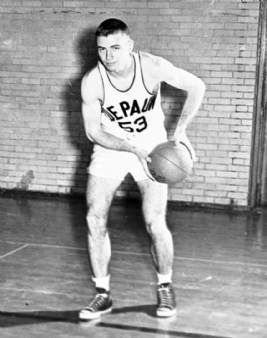 provide, and citizens need to ask for, the reporting that’s necessary to make the country work."
provide, and citizens need to ask for, the reporting that’s necessary to make the country work."
You'll find the complete essay at the website of Indiana's Kokomo Tribune.
Hamilton is a senior adviser for the Indiana University Center on Representative Government, a distinguished scholar with the IU School of Global and International Studies, and a professor of practice in the IU School of Public and Environmental Affairs. He was a member of the U.S. House of Representatives for 34 years.
A history major and basketball standout at DePauw, Lee Hamilton was awarded the Presidential Medal of Freedom in 2015. He was inducted into the Capital One Academic All-America® Hall of Fame and has also received the Churchill Award for Statesmanship, the Eisenhower Medal for exceptional leadership, the Distinguished Service Award from the U.S. 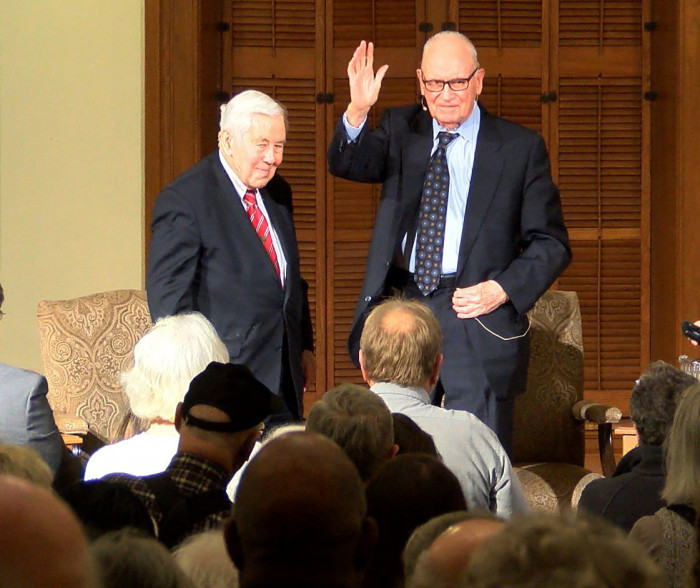 Association of Former Members of Congress, and the Franklin and Eleanor Roosevelt Institute Freedom From Fear Award, among many other honors. He's also a member of the Indiana Basketball Hall of Fame and DePauw's Athletic Hall of Fame.
Association of Former Members of Congress, and the Franklin and Eleanor Roosevelt Institute Freedom From Fear Award, among many other honors. He's also a member of the Indiana Basketball Hall of Fame and DePauw's Athletic Hall of Fame.
Since retiring from Congress, he's served on a number of government panels, including vice chair of the 9/11 Commission.
Congressman Hamilton has been a frequent visitor to his alma mater over the years. In February he joined former U.S. Senator Richard G. Lugar at DePauw to discuss the lack of civility in modern politics. Hamilton delivered an Ubben Lecture on March 15, 2011 as well as his alma mater's commencement addresses in 1971 and 1998.
Back